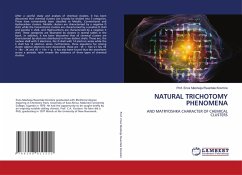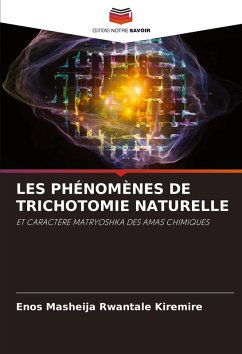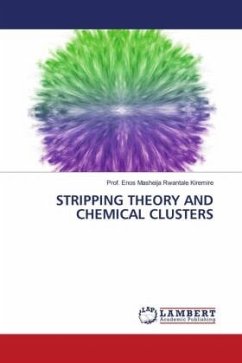
NATURAL TRICHOTOMY PHENOMENA
AND MATRYOSHKA CHARACTER OF CHEMICAL CLUSTERS
Versandkostenfrei!
Versandfertig in 6-10 Tagen
45,99 €
inkl. MwSt.

PAYBACK Punkte
23 °P sammeln!
After a careful study and analysis of chemical clusters, it has been discovered that chemical clusters can broadly be divided into 3 categories. These have conveniently been classified as Metallic, Conventional and Hydrocarbon clusters. Metallic clusters are characterised by a negative D shell, while the Conventional clusters are characterised by a positive D shell and positive C shell, and Hydrocarbons are characterised by a negative C shell. These categories are illustrated by clusters in several tables in the book. In addition, it has been discovered that all chemical clusters are character...
After a careful study and analysis of chemical clusters, it has been discovered that chemical clusters can broadly be divided into 3 categories. These have conveniently been classified as Metallic, Conventional and Hydrocarbon clusters. Metallic clusters are characterised by a negative D shell, while the Conventional clusters are characterised by a positive D shell and positive C shell, and Hydrocarbons are characterised by a negative C shell. These categories are illustrated by clusters in several tables in the book. In addition, it has been discovered that all chemical clusters are characterised by electrons distributed in three distinct shells. These are, the nuclear shell with 2 electrons, the D shell with 14 electron series while the C shell has 12 electron series. Furthermore, three equations for solving cluster valence electrons were discovered, these are : VE = 14z+2+12y, VE = 18n - 2K and VE = 14n + q. It has also been found that the movement across a periodic table reveals the existence of three types of chemical clusters.














